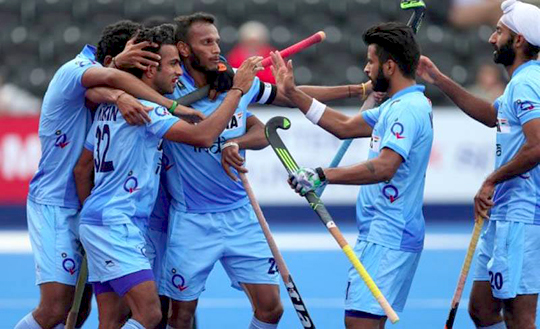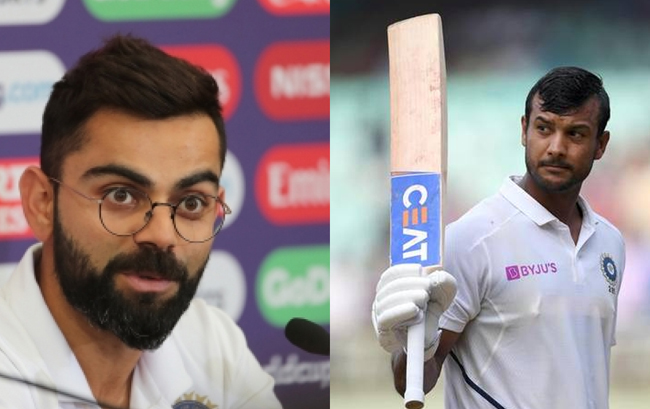London, Jun 17: Indian men's hockey team had their date with history as they clinched a maiden appearance in the final of the prestigious 36th Hero Champions Trophy Hockey tournament against formidable Australia after hosts Great Britain held Belgium to 3-3 draw in a final round robin match.

This will be India's first appearance in the summit clash in 36 years since the inception of the blue-riband six-nation tournament. India's only podium finish until now was a bronze medal won way back in 1982 at Amsterdam.
India would thank Great Britain, who rallied from a two goal deficit to hold Belgium 3-3 in a cliffhanger at the Lee Valley Hockey Centre late last evening. This was after India lost 2-4 to title favourites Australia in their last round robin encounter.
The draw between Great Britain and Belgium meant both of them finished behind India in the round-robin league, paving the way for India to play World champions Australia in the tonight's title encounter.
Australia topped the league standings with 13 points from five games, while India ended on seven points. Great Britain ended on six points and Belgium were left on four points.
Britain will feature in the bronze medal match with dethroned title holders Germany, who outplayed South Korea 7-0. This was Germany's biggest win over the Koreans in international matches. Belgium will take on South Korea in the play-off for the fifth position.
Starting the day's proceedings with a 2-4 loss to top-ranked Australia, the Indian players went through a pensive wait for the result of the last league fixture as both Great Britain and Belgium could have scraped ahead of India.
Britain simply required a victory to go past India on points, while Belgium needed to win by three goals or score at least four in a two-goal victory to finish ahead of India on goal difference.
All three possibilities were within close distance until the last stages, leaving the Indian fans in the stadium on tenterhooks. Even the last British shot at the goal with five seconds left could have taken the hosts into the final, but the ball went a few centimeters wide of the post.
The Indian team had left the ground after their match and followed the developments at the hotel, while the pendulum swung from one side to the other in a dramatic sequence.
India's tentative defence and wayward shooting had left them marginally short in the past, but luck smiled on India today as Belgium squandered their chance of increasing the 3-1 lead even as Britain played without a goalkeeper for the last six minutes.
Then Belgium had two players sent off and were down to nine men, allowing Britain to score twice in the space of three minutes and drawing 3-3 parity with 75 seconds left.
Britain went all out looking for that one good shot to land on target and lift them into the final, but the Belgian defence hung on grimly. Two shots from British strikers went wide of the target and India found themselves in the final.
Belgium had surged into the initial lead in the opening minute when Florent van Aubel deflected a powerful shot past British goalkeeper George Pinner.
Britain equalized on captain Barry Middleton's penalty corner conversion in the 25th minute. Jerome Luyparet fired in two successive penalty corners in the 30th and 42nd minutes to give Belgium a 3-1 lead, but the fourth goal proved elusive even when they surged forward with full thrust.
The tide turned for Britain when van Aubel got a yellow card in the 56th minute and Emmanuel Stockbroekx was sent off with red card two minutes later.
David Ames sent in a five reverse hit past a crowded circle in the 57th minute to revive the home team. With the crowd egging them on, captain Middleton scored his second goal of the match by deflecting a cross from Sam Ward in the 59th, but the 3-3 equaliser was as far as they could go.






Comments
Add new comment